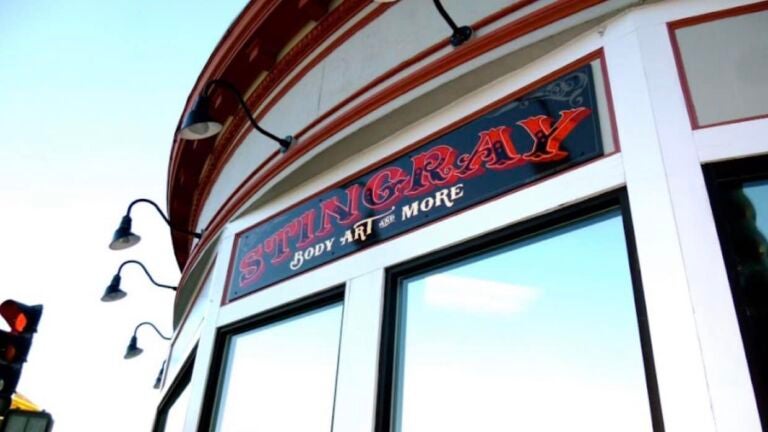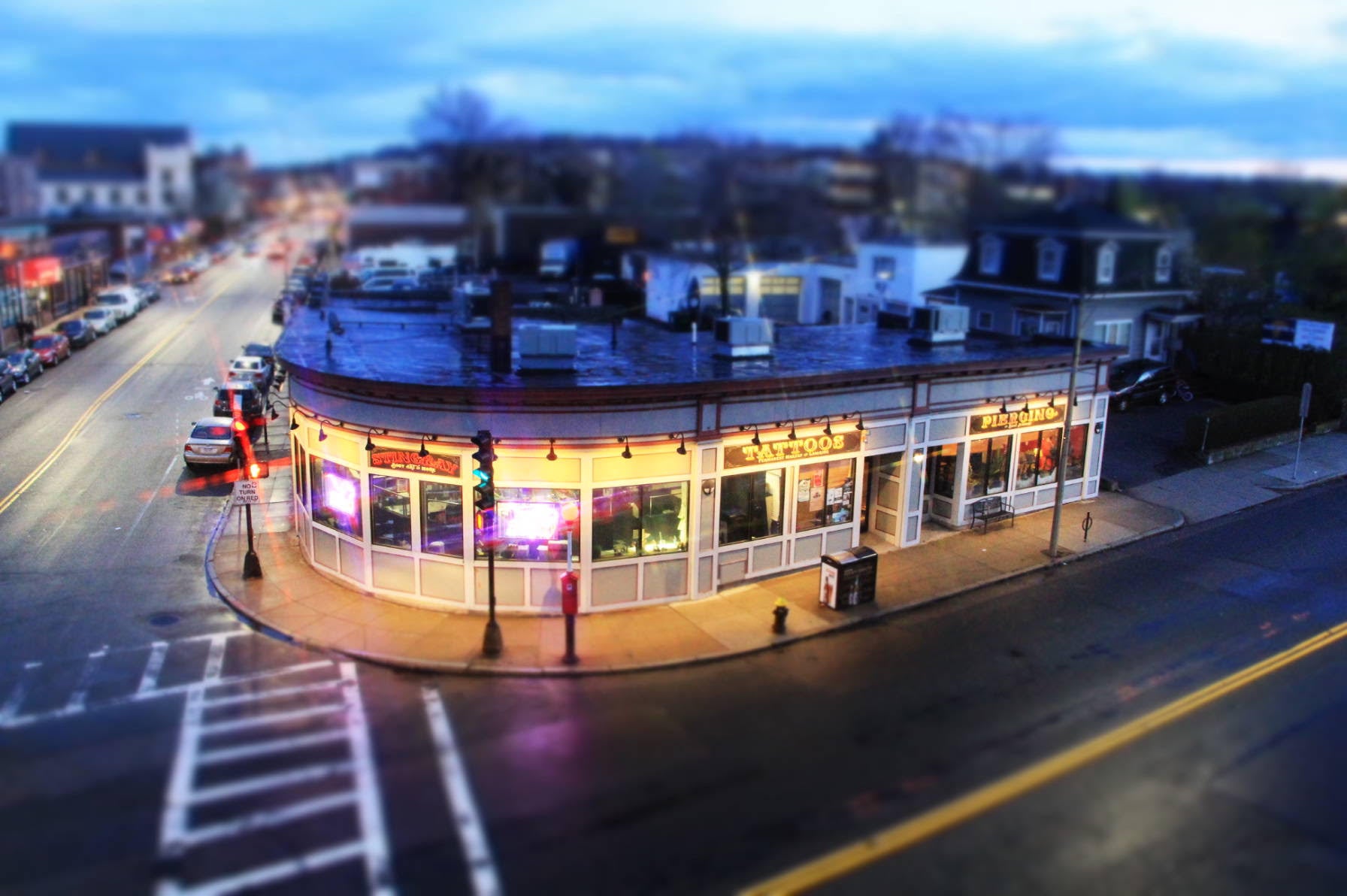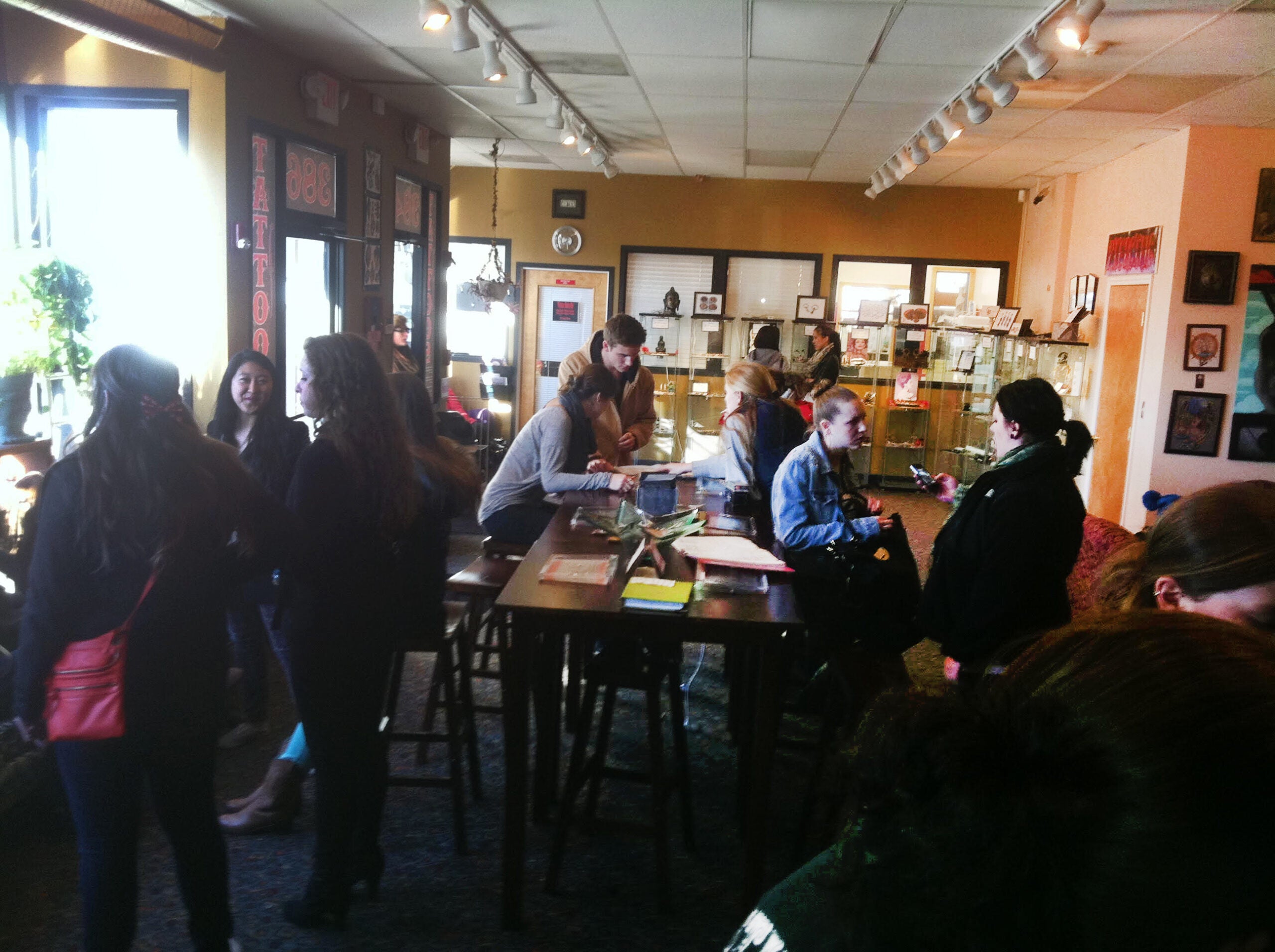Here’s why Allston’s Stingray Body Art closed abruptly this month
COVID
“It’s a heartbreaking thing, especially for us as the owners…[we feel that we] let our customers down, our community down, and worst of all, our employees,” one of Stingray’s co-owners said.

For nearly 20 years, Stingray Body Art sat next to O’Brien’s Pub at the corner of Harvard Avenue and Cambridge Street — an unmissable neighborhood staple of Allston.
Known for servicing groups of college students who came to get custom tattoos together, the tattoo and piercing shop felt like a natural reflection of the neighborhood’s diverse, young, and often punk inhabitants.

But on Aug. 6, Stingray made a surprising announcement — it was suddenly and without warning closing for good, joining the likes of other Allston staples to close in recent years, like music venue Great Scott and restaurants Regina Pizzeria, Common Ground, and Sunset Bar and Grill.
According to co-owner Scott Matalon, most of the shop’s artists have been able to find new jobs, and customers have had their deposits returned and been connected with their artist.
Matalon, who handled the tattoo shop’s operations, blamed the closure on pandemic-related business struggles, though he said the closure was planned only a week in advance.
After two especially slow months, Matalon said, Stingray’s leaders looked at its finances and realized it had to close immediately if it were to honor financial commitments it had already made.
The owners previously discussed closing in January 2023, but decided not to because they believed the shop would recover, Matalon said. They’d hoped to survive until September when the students returned, but couldn’t.
“It’s a heartbreaking thing, especially for us as the owners…[we feel that we] let our customers down, our community down, and worst of all, our employees,” he said. “We were working to succeed right up to the end.”
At the start of the pandemic, Stingray closed for five months, during which it still had to pay overhead costs like rent and utilities, Matalon said. But when it reopened, its financial situation was still bleak, as routine supplies had skyrocketed in price.
“Things like, for example, surgical gloves, which normally cost $8 a box, were over $30,” he said.
Another reason Stingray struggled was because the shop’s business model — being a big shop that could service large groups at once — was no longer viable in a world dealing with a pandemic, Matalon said.
“Before the pandemic, we had walk-in Saturdays. We had 40 people in the shop at a time, they all come with their friends, and that was part of the tattoo experience,” he said.
But after the pandemic, Matalon said, people could only enter the shop one at a time. They also had to wear masks, which dampened the social experience.

Like many small businesses, Stingray also struggled to keep its staffing levels up. A lot of small tattoo shops opened during the pandemic, Matalon said, and many of these shops offered high pay and were located in the suburbs where artists could be closer to home and have a lower cost of living.
When Stingray Body Art opened on Aug. 27, 2005, it joined the tattoo industry at a time when it was “going from back streets to Main Street,” as Matalon says.
“We all love tattoos, and we’d all had bad experiences at the old school shops…We would drive out of state or go to the lofts in South Boston and get a tattoo in a back room somewhere,” he said. “This was an opportunity to make something new, that was revolutionary in a way.”
Stingray focused on tattooing whatever customers wanted, as opposed to reproducing designs from flash sheets, Matalon said.
“The first and most important milestone was creating a shop that was designed [to make you feel welcome]. That whoever you were, you could come in and you could ask any questions and be treated with respect,” he said.
Matalon remembers customers saying their tattoo ideas had gotten them laughed out of other shops. One customer, for instance, told them an artist refused to do a tattoo of Yogi Bear.
“We got a lot of pushback from other shops…[They said we] were ruining the industry by making a big, large, friendly shop,” he said. “But I’m actually proud of that. If you’re making the old guard mad then you’re doing something right.”
Stingray also made a point of taking on young artists as apprentices and giving back to the community by sponsoring events and organizations, Matalon said.
“I’m really proud of everyone who’s ever worked at Stingray,” he said.
Newsletter Signup
Stay up to date on all the latest news from Boston.com
Originally posted 2023-08-30 20:31:29.